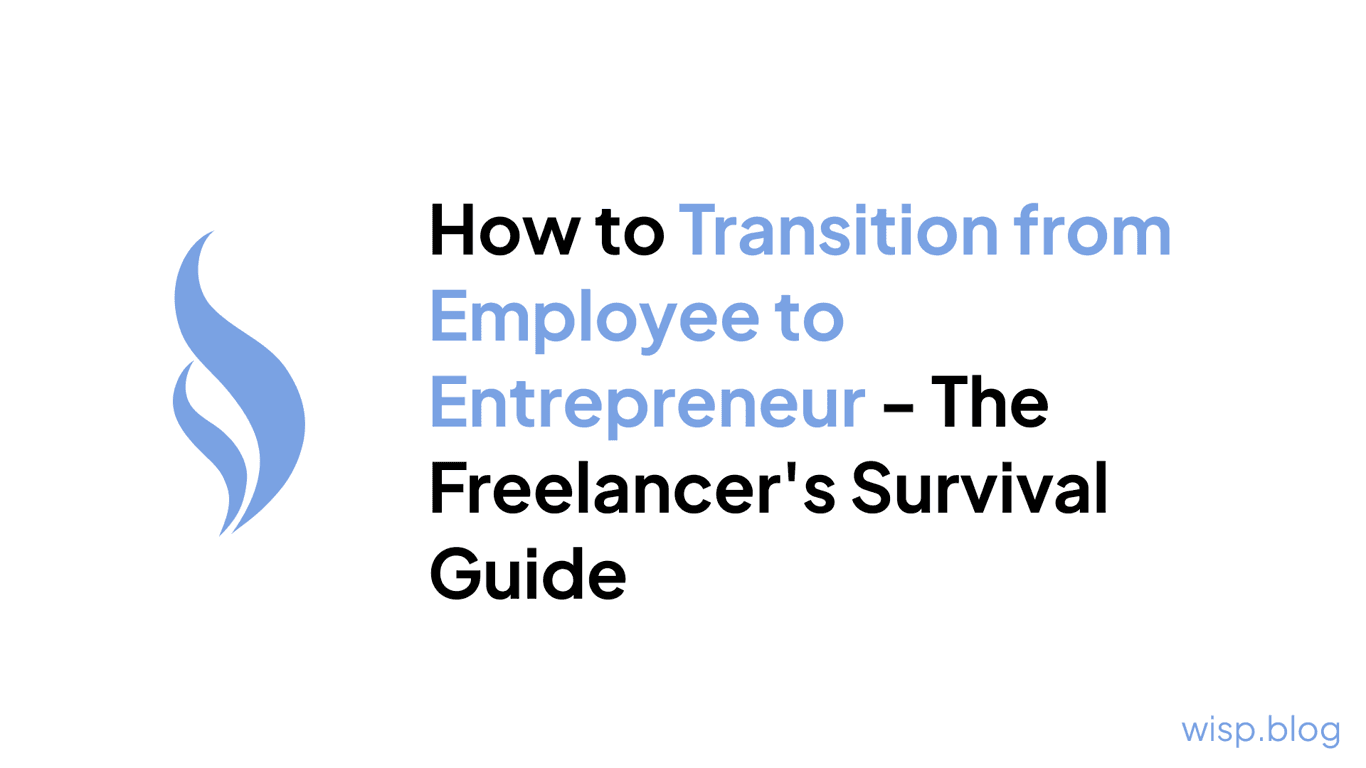
You've finally done it. After years of dedication, excellence, and even winning multiple awards at your corporate job, you've handed in your resignation. The decision wasn't easy – perhaps it was the constant frustration of being overlooked for promotions, watching less qualified colleagues advance through nepotism, or simply the realization that your talents deserve more freedom than a 9-to-5 can offer.
But just as you're ready to spread your entrepreneurial wings, there's one significant hurdle standing in your way: the non-compete clause in your employment contract. Even more challenging? Your former clients are eager to work with you, but that same agreement seems to be holding you back.
Understanding Non-Compete Clauses and Their Impact
Non-compete agreements are contractual clauses that restrict employees from working for competitors or starting competing businesses for a specified period after leaving their job. While employers argue these agreements protect proprietary information and client relationships, they can feel like golden handcuffs for talented professionals seeking independence.
The good news? The landscape is changing. The Federal Trade Commission (FTC) has recently announced a groundbreaking rule banning non-compete clauses, recognizing their harmful effects on worker mobility and economic competitiveness. According to the FTC's estimates, eliminating these restrictions could increase wages by approximately $300 billion annually across the economy.
The Reality of Enforcement
Before panic sets in about your non-compete agreement, it's important to understand that these clauses often have more bark than bite. As many experienced entrepreneurs have noted, while non-competes can appear intimidating on paper, their practical enforcement can be limited, especially in certain states.
For instance, states like California have long banned non-compete agreements, recognizing them as barriers to innovation and economic growth. Other states have various restrictions that might affect the enforceability of your agreement.
First Steps: Assessing Your Situation
Before making any moves with former clients or launching your new venture, take these essential first steps:
Locate Your Agreement: Find your employment contract and any other documents you signed when joining or leaving your company. Pay special attention to sections about non-compete, non-solicitation, and confidentiality agreements.
Understand the Scope: Carefully review the specific restrictions in your agreement:
How long does it last?
What geographical area does it cover?
What specific activities or industries are restricted?
Are there any exceptions or conditions?
Legal Considerations and Professional Guidance
One of the most crucial steps in navigating non-compete restrictions is seeking proper legal counsel. As emphasized by numerous entrepreneurs who've successfully made the transition, "Consult with a legal professional to review your non-compete agreement and assess its enforceability."
Key Legal Factors That May Affect Enforceability
Reasonableness of Restrictions: Courts generally only enforce non-compete agreements that are reasonable in:
Duration
Geographic scope
Scope of prohibited activities
State Laws: Different states have varying approaches to non-compete enforcement:
Some states ban them entirely
Others require specific conditions to be met
Many require the restrictions to protect legitimate business interests
Consideration: Was there adequate compensation or benefit provided in exchange for signing the non-compete?
Working with Former Clients: A Delicate Balance
One of the most common challenges expressed by new entrepreneurs is managing relationships with former clients who want to continue working with them. As one Reddit user shared, "The former clients want to work with me and I'm holding back just because of the non-compete."
Here are strategic approaches to handle this situation:
Review Client Relationships:
Determine which relationships originated through your personal network versus company connections
Understand any specific client-related restrictions in your agreement
Document how clients independently reached out to you, if applicable
Transparent Communication:
Be honest with former clients about your situation
Avoid actively soliciting business during any restricted period
Consider creating a timeline for when you can potentially work together
Practical Strategies for Moving Forward
While navigating the constraints of a non-compete agreement, there are several practical steps you can take to build your business without putting yourself at legal risk.
1. Diversify Your Client Base
Instead of focusing solely on former clients, consider these approaches:
Explore New Markets: Look for opportunities in adjacent industries or markets not covered by your non-compete
Build Your Online Presence: Create content and establish authority in your field without directly competing
Network in New Circles: Attend industry events and join professional groups outside your former employer's sphere
2. Develop New Skills and Services
Use any restricted period to:
Enhance your expertise through additional certifications
Develop complementary services not covered by your agreement
Create new methodologies and approaches to differentiate your offerings
3. Alternative Business Models
Consider these options to maintain income while honoring your agreement:
Pivot to Teaching or Consulting: Share your expertise without directly competing
Create Digital Products: Develop courses, templates, or tools that serve your industry
Partner with Complementary Businesses: Form alliances that don't violate your agreement
4. Document Everything
Protect yourself by maintaining clear records:
Keep copies of all communication with former employer
Document how new clients find and contact you
Save evidence of independent business development efforts
Track dates and timelines related to your agreement
Financial Planning During Transition
Many professionals feel trapped in corporate jobs due to financial concerns. As one individual shared on Reddit, "Corporate keeps me so trapped by paying me enough to survive- I'm terrified of being further in debt or unable to support my kiddo and my dog."
To address these concerns:
Build a Financial Buffer:
Save 6-12 months of living expenses
Reduce unnecessary expenses
Consider part-time or contract work in non-competing areas
Plan for Benefits:
Research health insurance options
Consider joining professional associations that offer group benefits
Explore health sharing ministries or other alternatives
Long-Term Success Strategies
Building a Sustainable Business Model
While waiting out your non-compete period, focus on creating a strong foundation for your business:
Develop Your Unique Value Proposition:
Identify gaps in the market not being served by your former employer
Create innovative solutions to industry problems
Build a brand that stands apart from your previous role
Establish Systems and Processes:
Document your methodologies
Create templates and workflows
Set up professional business operations
Plan for Growth:
Create a roadmap for scaling your business
Identify potential partnerships and collaborations
Consider future hiring needs
Maintaining Professional Integrity
Remember that how you handle this transition can impact your long-term reputation:
Honor Your Agreements: Even if not strictly enforceable, maintaining professional integrity builds trust
Focus on Value Creation: Instead of competing on price or existing relationships, create new value for clients
Build Positive Industry Relationships: Network professionally and avoid burning bridges
Moving Forward with Confidence
The journey from corporate employee to entrepreneur is challenging, but navigating non-compete restrictions doesn't have to derail your dreams. As one successful entrepreneur shared, "I'm not having any more of this... I've decided that I'm gonna go solo and I'm never going back to a 9 to 5."
Remember:
Non-compete agreements are often more restrictive on paper than in practice
Many restrictions are time-limited and will eventually expire
Focus on building new relationships and opportunities rather than dwelling on restrictions
Seek legal counsel to understand your specific situation
Use any restricted period to strengthen your business foundation
With careful planning, professional guidance, and a focus on creating new value, you can successfully transition from corporate life to entrepreneurship while respecting your legal obligations. The key is to view your non-compete period not as a limitation, but as an opportunity to build a stronger, more diverse business that will thrive long after any restrictions have expired.
Your corporate experience, combined with your entrepreneurial spirit, positions you perfectly for success – it's just a matter of navigating the transition strategically and patiently. Remember, many successful business owners have faced similar challenges and emerged stronger for having overcome them.


